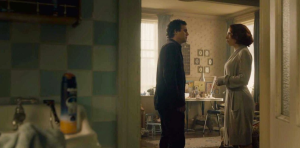The deadline for all abstracts to be submitted for the March 2016 meeting of the Northeast Modern Language Association is coming up this Wednesday 9/30.
Along with my colleague Derek S. McGrath, I'm co-organizing two sessions for NeMLA 2016:
The Monster In The House: Domestic Ideology in Superhero Narratives
(Panel Session)
In worlds full of superhuman heroes, mythological imaginary creatures and battle narratives of epic scope, what is the role of the domestic? This panel session seeks proposals investigating the ways in which domestic spaces function within superhero narratives as sites of union and/or conflict between the human, the subhuman, and the superhuman. How do teenage vigilantes like those in Runaways construct unconventional homes? How do familial/community obligations inspire the Hell’s Kitchen resident Daredevil to defend his hometown? How have heterogeneous, even internally combative, groups like the X-Men and the Justice League been imagined as odd couple household scenarios? How have extraterrestrials such as Superman used domestic ideology to make sense of their self-appointed mission to protect their adopted homes, and how may domestic ideology help us make sense of reading these characters’ stories as allegories of immigrants’ experiences?
This session seeks proposals that explore how domestic ideology informs and functions within superhero stories, as well as how humanity and the human are depicted in the context of domestic spaces within superhero narratives.
The Marvel Cinematic Universe As Literature
(Roundtable Session)
From co-organizer Derek S. McGrath:
This roundtable seeks to consider ways of analyzing the Marvel Cinematic Universe (films including Iron Man, Captain America, and Guardians of the Galaxy, among others, as well as television series including Agents of SHIELD, Agent Carter, and Daredevil) films and television series as literature. We are equally interested in proposals that focus on one specific film and ones that consider multiple films. And we welcome submissions from various schools of literary and media theory. In addition to points that we outline in our call for papers above, submitted abstracts may consider:
- Strategies for incorporating individual films and television episodes in course syllabi—or even courses based around just the Cinematic Universe
- The films’ structures as analogous to much earlier 1930s and 1940s superhero film serials
- The significance of revisions made in adapting the comics for film, whether changing characters’ backstories or adjustments in visual narrative between comic book panels and film screens
- Differences in storytelling practices between the films and the television series
- Challenges when adapting the original Marvel Comics due to rights disputes between Disney and Sony, Fox, and other studios that have led to the exclusion of the Fantastic Four, the X-Men, and up until now Spider-man
- Diversity or lack thereof among the characters, cast, and crew for the films and television series
Submissions for both CFPs are due this Wednesday, September 30. Abstracts must be submitted online at https://www.cfplist.com/nemla/Home/S/15845, with a free CFP List NeMLA account.
If you have any questions, please email maryiatrop@gmail.com and derek.s.mcgrath@gmail.com.

No comments:
Post a Comment